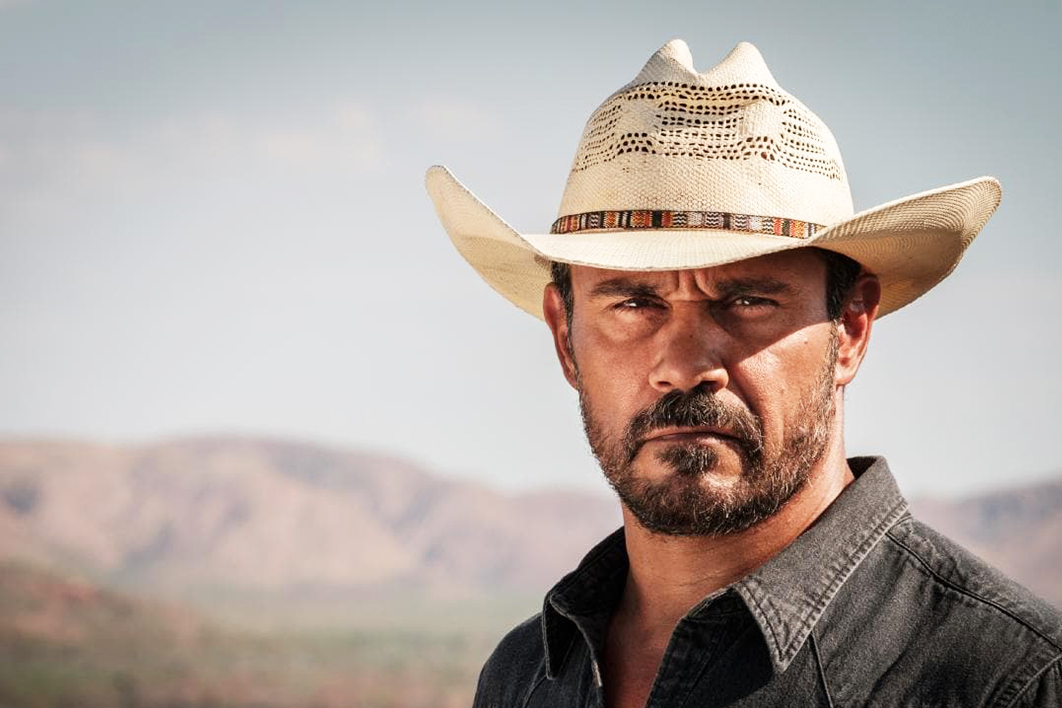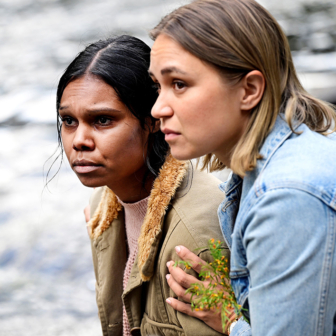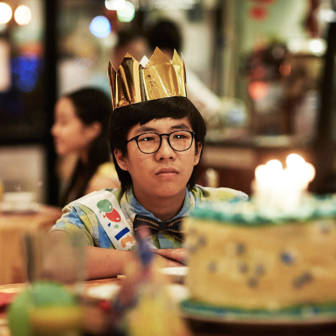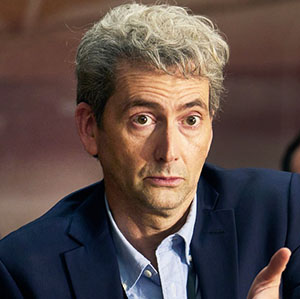House of Cards was bound to end with a fall, but it came about in a way the scriptwriters could hardly have anticipated. When Netflix announced that Kevin Spacey had been dropped following serious allegations of sexual harassment, the show suddenly lost its president. But another was in waiting: Spacey’s co-star and first lady, Robin Wright, was already being groomed for the role through season five.
Spacey might have been a major loss, but the transition to a female president was on trend, with women taking over in all domains. After all, this was the year when Jodie Whittaker became the first female lead in Doctor Who. And Sherlock Holmes’s intellectual primacy had already been seriously challenged, first by Dr Watson’s wife Mary (who turns out to be a secret agent) and then by Holmes’s long-lost sister Eurus, a genius of “stratospheric” capacities, as brother Mycroft tells us. In season four of Sherlock, Eurus is a Hannibal Lecter figure who controls events from a glassed-in isolation cell.
Last year was the year of the Queen. Claire Foy continued to reign supreme in season two of The Crown, Jenna Coleman assumed the throne in Victoria, and regal matriarchs plotted each other’s demise in Game of Thrones. For these series, 2018 was something of an interregnum — though season two of Victoria is currently airing on Nine — but all are set to return with a vengeance in 2019.
The momentum of the #MeToo movement has fed into this obsession with women in power, and sometimes the dramaturgy has been forced. In spite of Robin Wright’s cool charisma, the finale of House of Cards really was a debacle, and Sherlock’s “Final Solution,” a self-indulgent concoction on the part of the writers, threatened to send the whole enterprise down the gurgler. Apparently another season is planned — don’t tell me… with Eurus in the lead? No spoilers there, just guessing.
#MeToo carries with it a rather limited mood spectrum. It is anger-driven and sets up an obvious dramaturgical trap in the tendency to bipolarism: women are either in the top job, or they are abjectly oppressed. The Handmaid’s Tale, plumbing the depths of abjection, had another successful year from a critical point of view, but its ruthless pessimism is starting to drive audiences away. My Brilliant Friend, the series based on Elena Ferrante’s Neapolitan novels, offers a much more nuanced and genuinely insightful portrayal of female destinies constrained by male-dominated structures. There’s violence everywhere — street fights, marital bullying, screeching fights among the women — yet this is context for a sustained focus on the lives of two girls as they grow into adulthood and find ways out into a larger world.
At its best, the preoccupation with gender leads to courageous psychological exploration. Three fine series have been devoted to masculine trauma and breakdown, each of them featuring exceptional lead performances. In Patrick Melrose, Benedict Cumberbatch conjured a bizarre and haunting emotional landscape in his portrayal of a young man permanently scarred by childhood abuse. A Very English Scandal, based on real-life events in England in the 1960s, owed much of its audience appeal to the tragicomic genius of Hugh Grant as British politician Jeremy Thorpe, prepared to go to any lengths to preserve his public identity from the scandalous reverberations of a homosexual affair. Darren Criss won plaudits for a compelling and sophisticated performance as the spree killer in The Assassination of Gianni Versace.
In retrospect, this repertoire of rather grim offerings leaves an overall impression that gender themes have entered the depression zone and can’t find a way out. Certainly there’s little here that suggests itself as recommended holiday viewing.
What about something lighter? “There’s too much hysteria around gender,” according to Hannah Gadsby, the new doyenne of stand-up comedy. Gadsby won multiple awards for her hour-long show Nanette, recorded live at the Sydney Opera House and distributed through Netflix. Her persona is one of nerdy androgyny — cropped hair, cropped jacket, dark-framed glasses — but she doesn’t identify as transgender. “I don’t think even lesbian is the right identity for me,” she says, “I really don’t. I may as well come out now. I identify as tired. I’m just tired.” Stand-up comics, the best of them, should perhaps have a classification of their own. They are the vandals of taxonomy, going rogue with stereotypes, coming out with thoughts and attitudes that should never be let loose in public.
Gadsby excels at that game. She can be very funny. And she has the comedian’s gift of instant likeability. The shy smile, the wide-eyed glances that punctuate her statements, suggest that she is an innocent abroad, likely to get herself into trouble. She needs you to let her into your confidence as she takes you into hers.
It’s a mistake, though, to be too easily beguiled. When, just a few minutes into the show, she announces that she’s quitting comedy, she means it. In fact, this isn’t really a comedy performance at all. It’s a confessional monologue, a coming out of the most confronting kind, and an exposition of controlled rage as she evokes the experience of being abused, traumatised and “soaked in shame” through her adolescent years. Don’t try this out as family entertainment after a festive lunch.
Since anger has been the dominant note for 2018, surely it’s time to take a break and explore other registers of experience. So here are my three picks of the year for diversity, originality and sheer entertainment value.
The Americans broke the law of diminishing returns that afflicts so many multi-season dramas, by getting better with each season and delivering a powerful finale. Set in a middle-class suburb of Washington in the 1980s, it started out as the story of an all-American family in which the parents are KGB agents. They josh around in the kitchen, make friends with the neighbours (who just happen to work for the FBI), chivvy the kids about homework and every so often dive into the laundry to put on handy disguises and rush out to deliver a brutal whacking to someone who is threatening the interests of the homeland.
By halfway through the first season, I couldn’t see how the producers were going to get out of this with their reputations intact, but Keri Russell and Matthew Rhys in the lead roles stuck to their guns in every way, making the soap opera/spy thriller fusion work better than it had any right to. As the FBI neighbour, suave Noah Emmerich kept his footing through some precariously scripted scenes, and a cohort of Russian-speaking actors lent a touch of desperately needed authenticity. As the storylines got stronger and more sustained through seasons three and four, the deepening tensions in the relationships were increasingly compelling.
In the final season, the dynamics of the espionage operation change when Gorbachev comes to power, and the plot acquires a sharper political edge. Those whose futures are at stake are no longer the blow-ins who appear for a few episodes as targets for assassination, but the central characters who have evolved into a tight-knit, fine-tuned ensemble. Prepare to binge.
Killing Eve (BBC America) opens in a cafe in Vienna. A young woman catches the eye of a child sitting opposite, who is digging her spoon into a large serving of raspberry gelato. There’s an exchange of smiles, then the woman checks a diamond-studded watch and walks out, deftly tipping the ice cream over the child’s dress as she passes.
This prelude signals that we’re dealing with a refined variety of breaking bad. Villanelle, the assassin at the centre of events, is an artist in malice. She kills, of course, and in inventive ways, but the malice is expressed much more variously than that. Jodie Comer plays Villanelle with mercurial versatility: anarchist, fashionista, multilingual international adventurer, she seduces people with the pouty charm of an ingenue before moving in for the kill.
One of the best things about the series, described by Comer’s co-star Sandra Oh as “a psychological character show embedded in a thriller,” is that everything is spun by mockery, so that you are kept on the edge of your seat trying to figure out the tone of an exchange in order to guess where things are heading. As Eve, the MI5 agent in pursuit of Villanelle, Oh alternates between comedic self-mockery and gritty determination. The two women have an instinct for each other’s presence that borders on the uncanny and invites comparison with the Holmes–Moriarty dynamic, but in this case the feminist transposition really works.
Fiona Shaw as Eve’s MI5 boss and Danish actor Kim Bodnia as Villanelle’s Russian handler make up a central quartet of characters. It’s perfect casting, and a script of sparkling originality by Phoebe Waller-Bridge keeps the action dancing to the most unpredictable choreography.
The ABC’s own Mystery Road was also one of the strongest dramatic series of the year. It, too, takes the murder story out of generic frameworks and offers welcome relief from the miserabilism of so much in the 2018 repertoire. Director Rachel Perkins and cinematographer Mark Wareham allow the action to open out into the vast landscapes of the East Kimberley, so that all merely human motivations are dwarfed by the larger energies of the natural world.
Detective Jay Swan (Aaron Pedersen) and police officer Emma James (Judy Davis) have an immediate case to investigate, but recent troubles are only the surface manifestation of events that run in deeper strata, going back generations. Streams of molten anger have cooled and set over time, stabilised by the geology of the land itself. Casting directors are often the unsung heroes of television drama, and Anousha Zarkesh brings together Indigenous actors who embody the spirit of the story with nuanced intelligence. •





